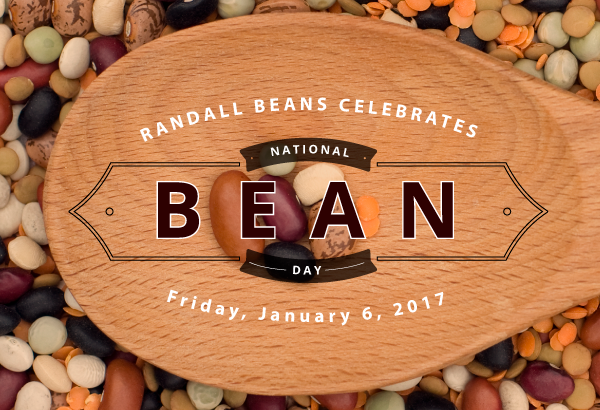Happy National Bean Day!
Yep, they really do have a day reserved for everything. But why today? Many point to the fact that January 6th marks the anniversary of famous monk, botanist and scientist Gregor Mendel‘s passing on this very date in 1884. Mendel made his mark in the world of science by discovering the basics of heredity – the passing on of physical or mental traits genetically from one generation to the next – through experiments done in his garden on beans. What better date to commemorate Mendel and beans?
Not like we are complaining. We love talking about – and eating – beans, so we will take any chance we get to do so!
We thought, what better way to celebrate beans than to have a little fun? Today we are going to dive deep and share some interesting bean facts! Some are informative, some are interesting and some are downright strange! Let us begin, shall we?
1. The World’s Tallest Bean Plant was over 45 feet tall
The world’s tallest was homegrown in the USA! In 2003, grower Staton Rorie tended the bean plant to colossal heights, recorded by Guinness Book of World Records as reaching 46 ft. 3 in!
For a little comparison, that is the same height as: three fully-grown giraffes stacked on top of one another, over half as tall as the White House (70 feet), 1/8th of a California Redwood tree and the same height as 115 stacked cans of coke.
2. Bean Soup is on the U.S Senate restaurant menu… every single day
What can we say, important people like beans! Since the very early 1900’s, bean soup has been a staple on the menu for United States senators when they dine in Washington. There are a couple different stories about the origins of the importance of this dish. Some attribute it to a strong request by Idaho senator Fred Dubois in the early 20th-century. Others say it started in 1907 when Minnesota senator Knute Nelson introduced a resolution to have the dish served every day regardless of the weather.
Either way, it’s been that way for over 100 years and it doesn’t seem to be changing anytime soon. In fact, the United States Senate’s website has the recipe posted online if you ever want to try it for yourself and dine like Washington’s elite.
3. North Dakota produces 1/3 of beans in the U.S
North Dakota is known for a lot of things, but we doubt you would have guessed that it is the capital of bean production in the United States.
And honestly, it’s not even close! North Dakota accounts for 32% of the nation’s bean production, followed at a distant 2nd by Michigan at 17%. Nebraska rounds out the top three at 11%.
4. In ancient Greece, public officials were elected by beans
Hey, the early days of democracy were a little flawed, give them a break!
It is true, however, the Greeks had an unorthodox method of determining the election of some public officials. Using a “bean machine” – as it is referenced – 100 beans were counted and placed inside the machine. 99 were black and only one was white. So, as you can imagine, 100 eligible names were taken and randomly arranged each taking turns receiving a bean from a tube at the bottom of the machine and the one who received the black bean was chosen.
Thankfully, none of these random selections were of any major importance – often determining minor officials or jury members.
5. Pythagoras and his followers had a strange aversion to beans
If you try really hard to think back to high school geometry, you may remember the name Pythagoras or at least the Pythagorean Theorem. The famous Greek philosopher and mathematician was so well respected that many chose to model his way of life as their own, soon gaining a somewhat cult following. One of the largest teachings of Pythagoras was to avoid the consumption of meat and eat only fruits and vegetables. Pythagoras is actually considered to be the father of vegetarianism.
However, there was one vegetable he banished from his diet: beans. For reasons many are still uncertain about, Pythagoras refused to eat beans, even going as far as to refuse to walk in bean fields. Some say he believed souls passed through beanstalks and roots on their way to the Underworld. Somewhat ironically, Pythagoras met his demise after being chased by a mob to the edge of a bean field and refusing to enter.
Followers of Pythagoreanism subsequently dropped this edict soon after.
We hope you find these facts as strange and fun as we do! In honor of National Bean Day, we propose you try some of our favorite bean recipes like White Chicken Chili with Great Northern Beans, or Family Ham & Beans for dinner tonight!


